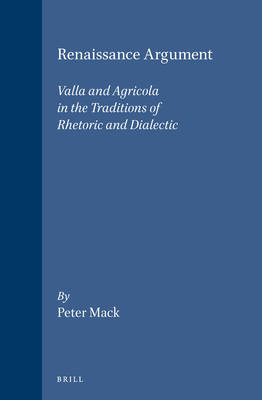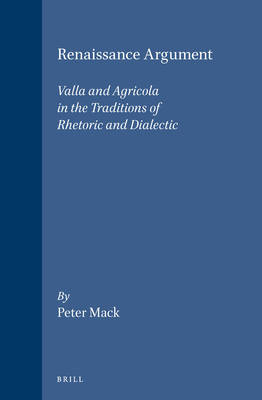
- Afhalen na 1 uur in een winkel met voorraad
- Gratis thuislevering in België vanaf € 30
- Ruim aanbod met 7 miljoen producten
- Afhalen na 1 uur in een winkel met voorraad
- Gratis thuislevering in België vanaf € 30
- Ruim aanbod met 7 miljoen producten
Zoeken
€ 245,95
+ 491 punten
Omschrijving
This book presents a new interpretation of the two most innovative renaissance works on the use of language, Lorenzo Valla's Repastinatio dialecticae et philosophiae (1439) and Rudolph Agricola's De inventione dialectica (1479). Mack attempts to find a path through the controversies which have recently raged around Valla's work, acknowledging the originality and skill of his attack on Aristotelian logic metaphysics, but recognizing the inconsistency (and even the Aristotelianism) of his alternative system. Mack provides the first full commentary on Agricola's work in modern times, establishing its originality and coherence. Far from being a mere popularisation of Valla, De inventione dialectica turns out to be one of the great texts of the Western rhetorical tradition. The book concludes with a survey of Agricola's influence on rhetorical thinking and practices of reading and writing, through print, the educational system, and such intermediaries as Erasmus, Vives, Melanchthon and Ramus.
Specificaties
Betrokkenen
- Auteur(s):
- Uitgeverij:
Inhoud
- Aantal bladzijden:
- 408
- Taal:
- Engels
- Reeks:
- Reeksnummer:
- nr. 43
Eigenschappen
- Productcode (EAN):
- 9789004098794
- Verschijningsdatum:
- 1/07/1993
- Uitvoering:
- Hardcover
- Formaat:
- Genaaid
- Afmetingen:
- 166 mm x 245 mm
- Gewicht:
- 857 g

Alleen bij Standaard Boekhandel
+ 491 punten op je klantenkaart van Standaard Boekhandel
Beoordelingen
We publiceren alleen reviews die voldoen aan de voorwaarden voor reviews. Bekijk onze voorwaarden voor reviews.








